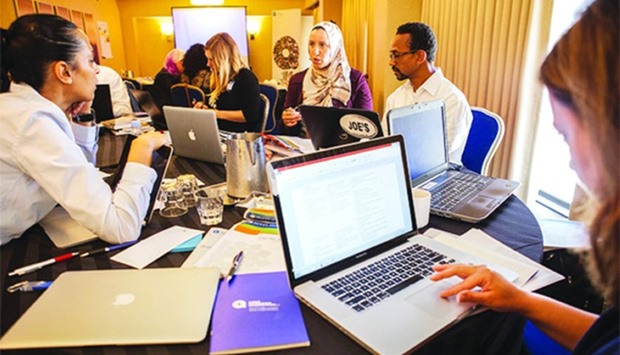Qatar Foundation International (QFI) will be hosting three professional development institutes this summer, known as the Arabic Summer Institute, with 48 teachers of Arabic in three cities across the United States.
QFI's Arabic Summer Institute provides an opportunity for teachers of Arabic to come together and discuss pedagogy, curriculum development and cultural awareness in the classroom.
The institute for middle and high school teachers will be hosted in partnership with the Arab American National Museum, in Dearborn, Michigan from today until 5th of this month. 15 middle and high school teachers from QFI-supported schools in the US and Canada will convene in Dearborn and learn more about integrating the teaching of Arab culture in the Arabic language classroom.
A new addition this year, the Elementary School and Immersion Summer Institute, will be held in New York City--from today until 3rd of this month. QFI is bringing 18 Arabic elementary school and Arabic immersion teachers and administrators for the workshop. Attendees will include teachers from Houston, New York City, Los Angeles, and Edmonton, Canada.
Additionally, the Teaching Arabic as a Foreign Language (TAFL) course will gather QFI's teacher fellows in Minneapolis from August 8 to 13. 15 fellows from the US and Brazil will learn more about foreign language teaching methodology and pedagogy. Dr. Salah Ayari will lead the course as well as guest speakers from the Centre for Advanced Research on Language at the University of Minnesota.
The Arabic Summer Institute was founded six years ago to meet the needs and interests of Arabic language educators and to equip them with best practices in curriculum planning, classroom management, and integrating culture in the language classroom. It brings together new and experienced teachers from QFI’s Arabic programmes across the US and Canada.
Maggie Mitchell Salem, executive director,QFI, said, “The demand, and importance of Arabic language education in US schools is growing every year.QFI is committed to supporting language and non-language teachers as they explore Arab culture and society in their classrooms.”

